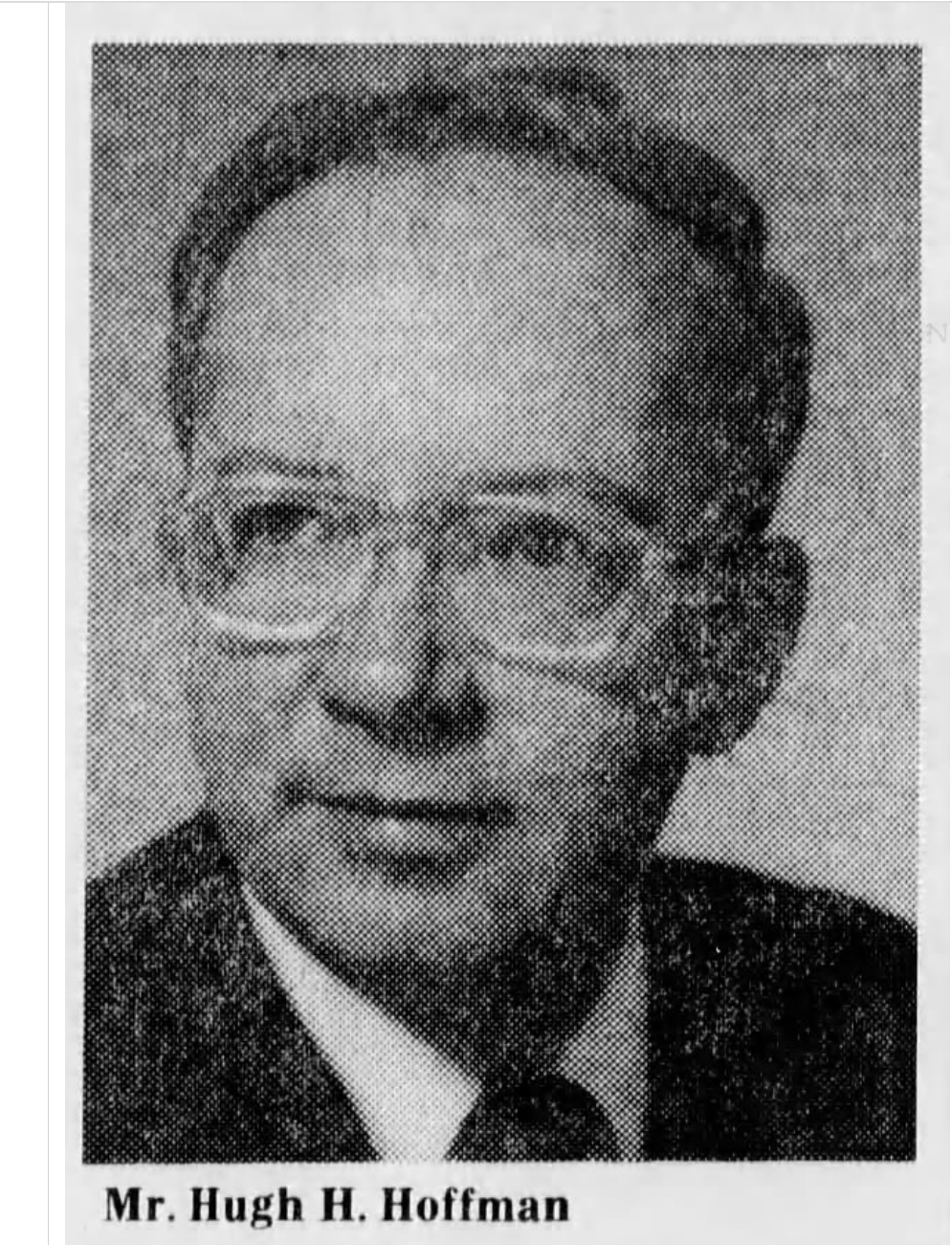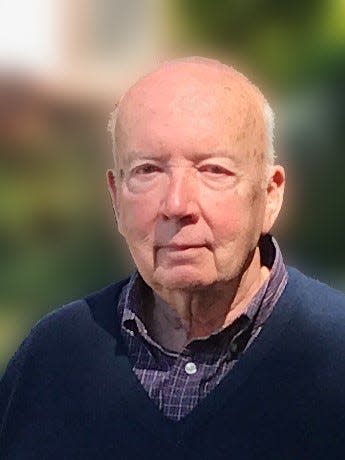Hugh Hoffman, a quiet millionaire, leaves behind a big legacy. 'It was very shocking'

- Oops!Something went wrong.Please try again later.
Hugh Hoffman didn't grab much attention in life despite his large wealth.
His address listed in Hamilton County property records shows he lived in a modest, one-story ranch in the wealthy suburban enclave of Indian Hill east of Cincinnati.
While Hoffman may not have sought the spotlight, the large gifts he left behind after his death at the age of 91 have made people take note of this little-known millionaire. One beneficiary called Hoffman's posthumous generosity "shocking."
Hoffman left millions to the Cincinnati Zoo and Botanical Garden, the University of Cincinnati and the Cincinnati Nature Center. He also left money to the Cincinnati Museum Center and other institutions.
His estate was valued at an estimated $270.5 million, according to documents from Hamilton County Probate Court.
Hoffman died March 2 in Cincinnati "surrounded by beloved friends and family," according to his obituary on Legacy.com. His will showed he wanted to help organizations in the town where he grew up and lived.
A fateful call
Jeff Corney in June received a fateful call. It was Hoffman's nephew Herbert Bullock, the executor of Hoffman's estate and an attorney. They wanted to inform Corney that the Cincinnati Nature Center, of which Corney is the executive director, was about to receive a very large gift.
"It was very shocking," Corney said. "I really did have to ask twice. Can you please repeat that number?"
Who benefits?
While exact totals have yet to be ironed out, UC and the Cincinnati Zoo will get about $50 million. The Cincinnati Nature Center will get $20 million-$25 million.
In addition, Hoffman in his will left:
$100,000 to the Cincinnati Museum Center.
$100,000 to the Cincinnati Garden Center.
$100,000 to the Little Miami Conservancy.
About $70 million to charities with programs "dedicated to the research or treatment of Amyotrophic Lateral Sclerosis" or charities that research or treat concussions.
What will the money go toward?
For the nature center, a private, membership-based park in Milford and Goshen with a $7 million annual budget, the donation was "extraordinary," Corney said. The nature center will use the money to upgrade buildings and programs, though Corney declined to go into specifics saying the plans are in their infancy.
"For the nature center, it is nothing short of transformational for us," Corney said.
For the Cincinnati Zoo, the $50 million bequest will help them build improvements for the animals and exhibits, though the exact use remains to be determined, said Zoo Director Thane Maynard.
"We're going to work with the family and the executors of the estate and make sure that we're living up to the wishes of Hugh Hoffman," Maynard said. "It's a long-term process."
UC's gift will go toward scholarships for music, business, arts and science and athletics, per Hoffman's will.
'A quiet and thoughtful man'

So who was Hoffman? Corney said he didn't know him well but his family is well known. His uncle Stanley Rowe founded the Cincinnati Nature Center in the 1960s. Hoffman served as the nature center's director decades ago. But for the most part, Hoffman preferred to support causes behind the scenes, Corney said.
"He was by all indicators a private, quiet, unassuming man," Corney said. "He clearly loved the nature center, loved the zoo and other places."
Hoffman traveled the world, Maynard said. He went on several of the Cincinnati Zoo's safaris and trips abroad with Maynard. These trips included the pyramids of Egypt as well as Kenya and Tanzania in the 1990s.
"He was a quiet and thoughtful man, a curious man, and now very obviously a generous man," Maynard said. "He was very smart and very interested in the world."
Hoffman visited Africa, Asia, Antarctica and South America, even traveling the Amazon River, his nephew Steve Bullock, of Chapel Hill, North Carolina, told The Enquirer.
Hoffman never married nor had children.
"Beyond that, he wore polo shirts and khakis," Bullock said. "He was a very unassuming man. A nice guy."
Hoffman graduated from Yale University in 1954. He worked as an investment advisor for W.E. Hutton & Co. and Thomson McKinnon in Cincinnati, according to his obituary.
He made a fortune by investing his family's wealth, Bullock said.
"He began with some family money, and then simply invested it very wisely, never had a lot of expenses," Bullock said. "He was just simply an excellent, excellent investor."
Hoffman and his parents, Herbert H. Hoffman and Madeleine Rowe Hoffman, were often mentioned in The Enquirer's society pages in the 1930s through the 1950s, announcing their trips to the family's summer home in Weekapaug, Rhode Island. His parents founded the Civic Garden Center of Cincinnati in 1942.
Does this affect the zoo levy?
And in case you're wondering, Hoffman's gift has no effect on property taxes for the zoo's levy.
The donation is completely separate from the $7 million in annual revenue the Cincinnati Zoo gets from the property tax, Maynard said. Voters will decide in November whether to renew the current property tax for the zoo. The levy proceeds go toward animal care and maintenance.
Hoffman's gift will go toward capital projects to make the lives "better for our animals as well as our members and guests."
"He will help us build an even better Cincinnati Zoo than we have today," Maynard said. "There's no doubt about that."
Reporter Amber Hunt contributed to this report.
This article originally appeared on Cincinnati Enquirer: Cincinnati Zoo and UC receive massive gift from quiet millionaire”

